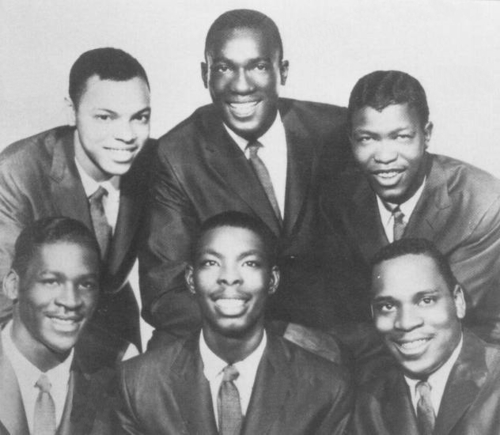Информация об исполнителе
The Monotones were a six-member Doo Wop band in the 1950s United States. They are considered a one-hit wonder, as their only song to reach widespread popularity was the doo-wop hit "(Who Wrote) The Book of Love", which peaked at #5 on the Billboard Hot 100 in 1958.
The Monotones formed in 1955 when the seven original singers all residents of the same housing project in Newark, New Jersey began performing covers of popular doo-wop songs. The members of the Monotones were lead singer Charles Patrick, first tenor Warren Davis, second tenor George Malone, bass singer John Smith, second bass singer John Ryanes, and his brother, baritone Warren Ryanes. Charles Patrick's brother James was originally a member, but he left soon after the group's formation. In 1957 the group recorded their first song, "Book of Love". The song was released in 1958 and propelled the group to short-lived fame. Later releases never gained popularity. The Monotones disbanded in 1962. Surviving members have met to revive "Book of Love" several times since the breakup.
Don McLean, in his 1971 song "American Pie", made reference to "The Book of Love" as a symbol of the innocence of 1950s rock 'n' roll culture.
The Monotones formed in 1955 when the seven original singers all residents of the same housing project in Newark, New Jersey began performing covers of popular doo-wop songs. The members of the Monotones were lead singer Charles Patrick, first tenor Warren Davis, second tenor George Malone, bass singer John Smith, second bass singer John Ryanes, and his brother, baritone Warren Ryanes. Charles Patrick's brother James was originally a member, but he left soon after the group's formation. In 1957 the group recorded their first song, "Book of Love". The song was released in 1958 and propelled the group to short-lived fame. Later releases never gained popularity. The Monotones disbanded in 1962. Surviving members have met to revive "Book of Love" several times since the breakup.
Don McLean, in his 1971 song "American Pie", made reference to "The Book of Love" as a symbol of the innocence of 1950s rock 'n' roll culture.
показывать / спрятать больше







 |
|



![VA - Vic Van De Reijt Presenteert Vic's Fabolous Fifties (De 100 Favorieten) (2009) [FLAC (tracks)] VA - Vic Van De Reijt Presenteert Vic's Fabolous Fifties (De 100 Favorieten) (2009) [FLAC (tracks)]](cache/thumbnail30/browse160530.jpg)
